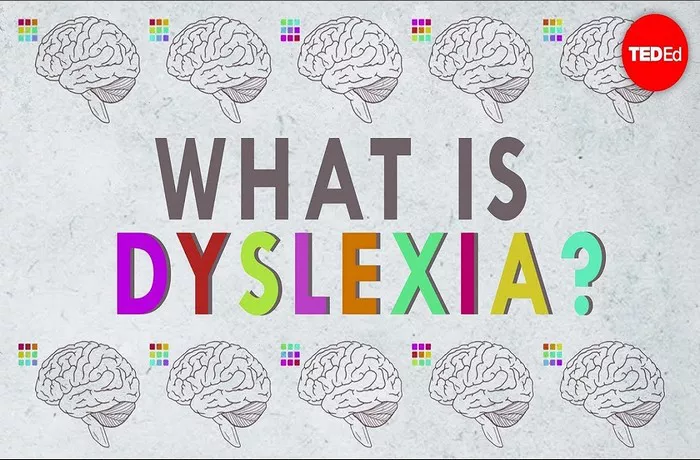Dyslexia, a neurodevelopmental disorder that affects reading, writing, and spelling, has long been associated with difficulties in language-related tasks. However, there’s a common misconception that dyslexics inherently struggle with mathematics as well. This notion is often rooted in misunderstandings about dyslexia and the diverse cognitive profiles it can entail. In this article, we will explore the relationship between dyslexia and mathematical abilities, debunk common myths, and shed light on the unique strengths dyslexic individuals may possess in the realm of mathematics.
Understanding Dyslexia: Beyond Reading and Writing
Dyslexia is a complex condition that affects the way the brain processes language. While it primarily manifests as difficulties in reading, writing, and spelling, dyslexia can also impact various aspects of learning and cognition. Individuals with dyslexia may experience challenges with phonological awareness, rapid automatized naming, working memory, and processing speed. These difficulties can have significant implications for academic performance and daily functioning.
The Math Myth: Dispelling Misconceptions
One prevalent myth surrounding dyslexia is that individuals with this condition are inherently bad at math. This misconception stems from a misunderstanding of dyslexia as solely a language-based disorder. However, research has shown that dyslexia does not inherently affect mathematical ability. In fact, many dyslexic individuals excel in mathematical reasoning, problem-solving, and other aspects of mathematics.
Strengths of Dyslexic Thinkers
While dyslexia presents challenges in certain areas of learning, it also fosters unique strengths and cognitive abilities. Dyslexic individuals often demonstrate exceptional spatial reasoning, visual thinking, creativity, and holistic problem-solving skills. These strengths can be particularly advantageous in fields such as mathematics, where the ability to visualize concepts, think flexibly, and approach problems from different angles is crucial.
The Role of Executive Functions
Executive functions, which encompass skills such as planning, organization, self-regulation, and cognitive flexibility, play a critical role in mathematical performance. Research suggests that dyslexic individuals may exhibit differences in executive function compared to non-dyslexic peers. While some aspects of executive function may be impacted by dyslexia, others, such as cognitive flexibility and problem-solving, may be enhanced. These differences can influence how dyslexic individuals approach mathematical tasks and problem-solving strategies.
Visual-Spatial Abilities and Mathematical Thinking
One of the key strengths associated with dyslexia is enhanced visual-spatial abilities. Dyslexic individuals often have a strong capacity for visual thinking and mental imagery, allowing them to perceive and manipulate spatial relationships more effectively. In mathematics, these abilities can facilitate understanding of geometric concepts, visualization of mathematical operations, and problem-solving through spatial reasoning strategies. Research has shown that dyslexic individuals may rely more heavily on visual-spatial processing when engaging in mathematical tasks, leading to innovative problem-solving approaches.
Alternative Strategies and Approaches
Due to differences in cognitive processing, dyslexic individuals may benefit from alternative strategies and approaches to learning mathematics. Visual aids, manipulatives, diagrams, and hands-on activities can help dyslexic learners grasp mathematical concepts more effectively by tapping into their strengths in visual-spatial processing. Similarly, employing multisensory techniques, such as incorporating auditory and kinesthetic elements into instruction, can enhance comprehension and retention of mathematical content.
Overcoming Challenges: Support and Accommodations
While dyslexic individuals may possess strengths in mathematics, they may still encounter challenges related to reading, writing, and language processing within mathematical contexts. Providing appropriate support and accommodations can help mitigate these challenges and enable dyslexic learners to succeed in mathematics. This may include access to assistive technology, extended time on tests, use of alternative formats for instructional materials, and explicit instruction in mathematical vocabulary and notation.
Embracing Neurodiversity in Mathematics Education
In recent years, there has been a growing recognition of the importance of embracing neurodiversity in education, including mathematics. Rather than viewing dyslexia as a deficit to be remediated, educators and researchers are increasingly acknowledging the diverse cognitive profiles and unique strengths of dyslexic individuals. By adopting inclusive teaching practices and recognizing the value of different ways of thinking, educators can create learning environments that support the success of all students, including those with dyslexia.
Conclusion
The notion that dyslexics are inherently bad at math is a persistent myth that fails to capture the diverse cognitive abilities and strengths of individuals with dyslexia. While dyslexia presents challenges in certain aspects of learning, it does not preclude proficiency in mathematics. In fact, many dyslexic individuals excel in mathematical reasoning, problem-solving, and visual-spatial thinking. By understanding and leveraging the strengths of dyslexic thinkers, educators can create inclusive mathematics education environments that empower all students to succeed.


